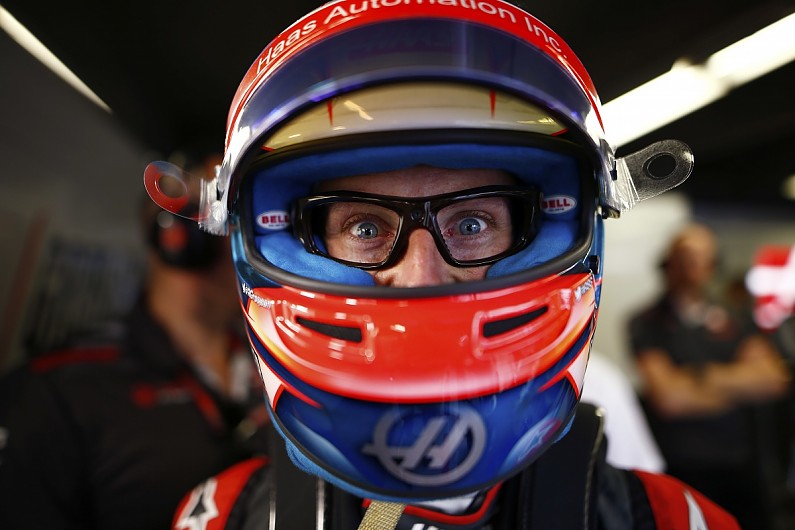Get unlimited access
You have only 5 articles remaining to view this month.
Formula 1 is no longer pursuing the glasses camera concept it trialled earlier this season, but has two serious alternative options as it closes on introducing a driver’s-eye-view onboard shot.
Pierre Gasly gave F1’s camera glasses their first race weekend trial in Monaco before Romain Grosjean wore them for an installation lap on Friday in Canada (above).
The arms of the glasses contained electronics that made them bulky and meant they fitted poorly inside a helmet and were painful to wear.
Autosport has learned that F1 wanted to move away from this to satisfy the FIA’s safety criteria.
But F1’s head of onboard camera development Steve Smith has confirmed there is one major driver’s-eye idea in development and at least one other being considered.
“We’ve lost interest in putting glasses on,” Smith told Autosport. “It’s alright footage, but at what risk? We’re not prepared to take any chances.
“So, we’re now looking at a camera that goes in the foam [to the side of a driver’s head] or in a similar position that has a wire coming out into a connector.
“I couldn’t put a timescale on it but in the not-too-distant future we will have a solution for it.”
As reported by Autosport, F1 has discussed trialling a new driver’s-eye-style camera with Fernando Alonso as part of his F1 farewell.
The desire for F1’s TV coverage to include a shot from the driver’s crash helmet has increased recently.
IndyCar has been promoting helmet-camera footage for some time, but has used a much larger camera attached to the top of a helmet to do so.
F1 cannot do this because it fears it would set a bad precedent to other categories to attach bulkier action cameras, which could be unsafe.
It wants to persevere with finding a tiny camera that weighs no more than 35 grams but does not compromise picture quality, and will then commit to getting the design homologated by the FIA.
Smith said that “to meet the criteria set down by the FIA, not interfere with the driver and be safe, we’ve yet to find a suitable camera” but claimed F1 is “very close” to finding the product it is looking for and is aiming to achieve a full-HD picture.
“The law of physics almost defies you to find a small camera that’s high quality but doesn’t get hot,” he added.
A camera mounted internally would inevitably have reduced picture quality because of helmet visors but this is considered to an unavoidable issue that would be a worthwhile drawback for what it would add to the TV coverage.
Another idea, which avoids this problem, is to take advantage of tweaked helmet designs for next season that featured a bigger chin safety area.
This would not be driver’s-eye level, instead sitting just below their nose, but it would still offer the same dynamic and crucially look out of the helmet without any obstruction.
